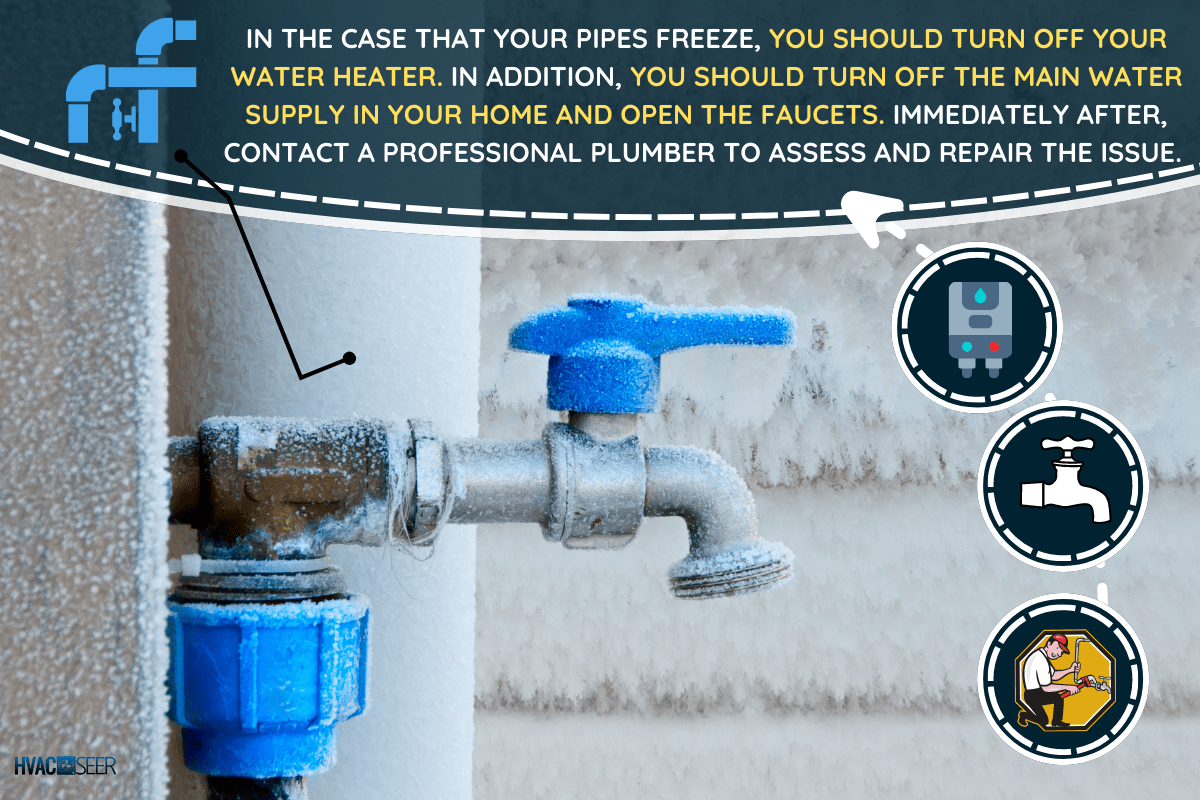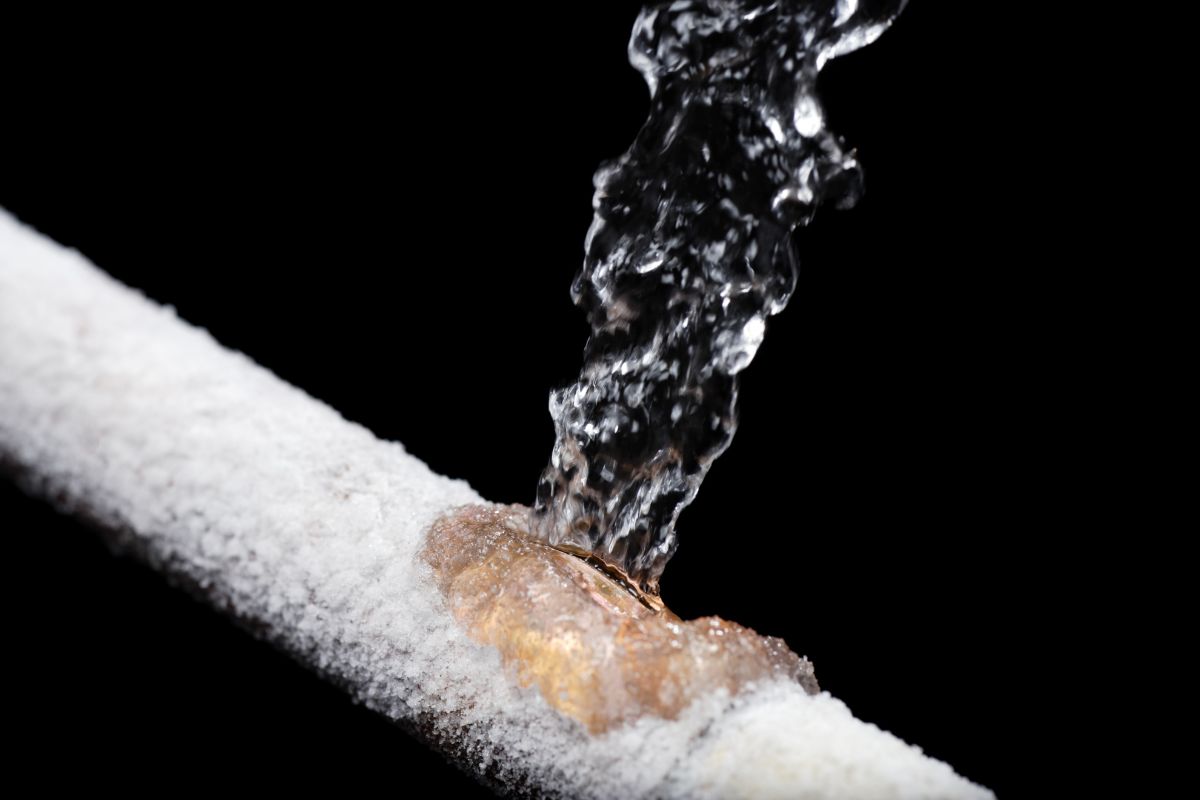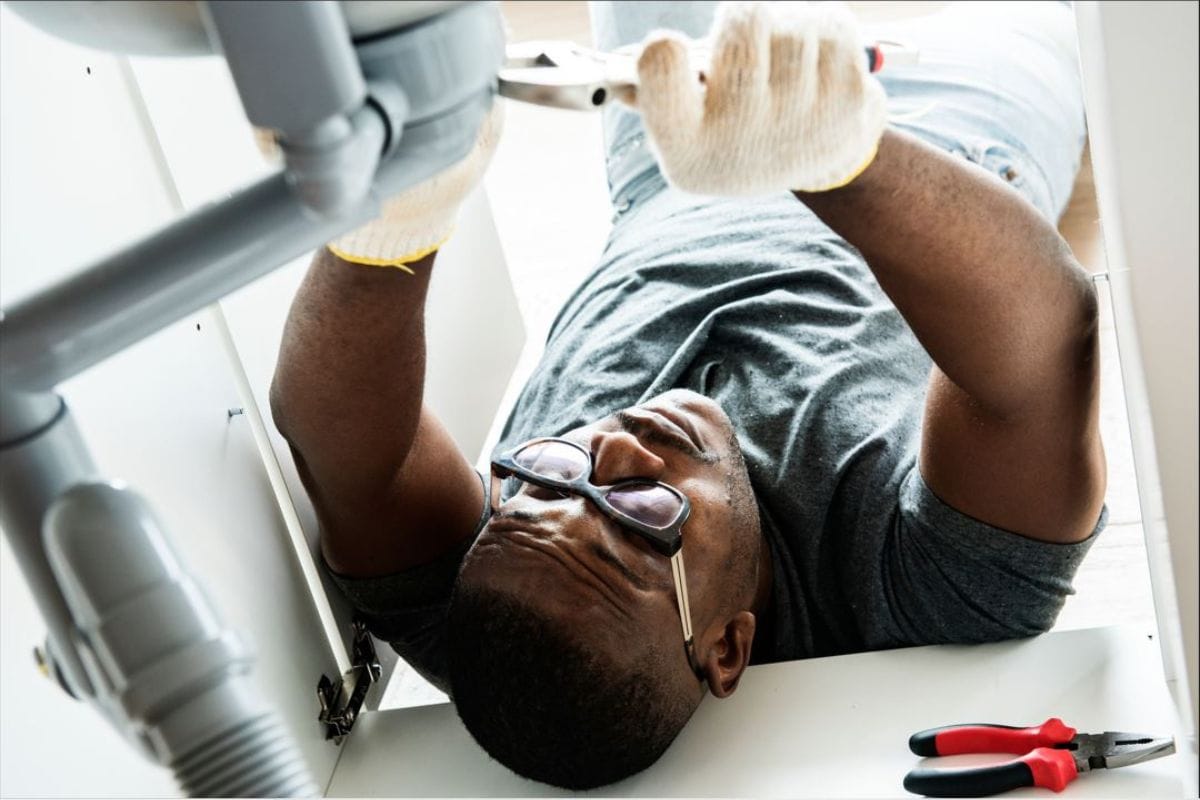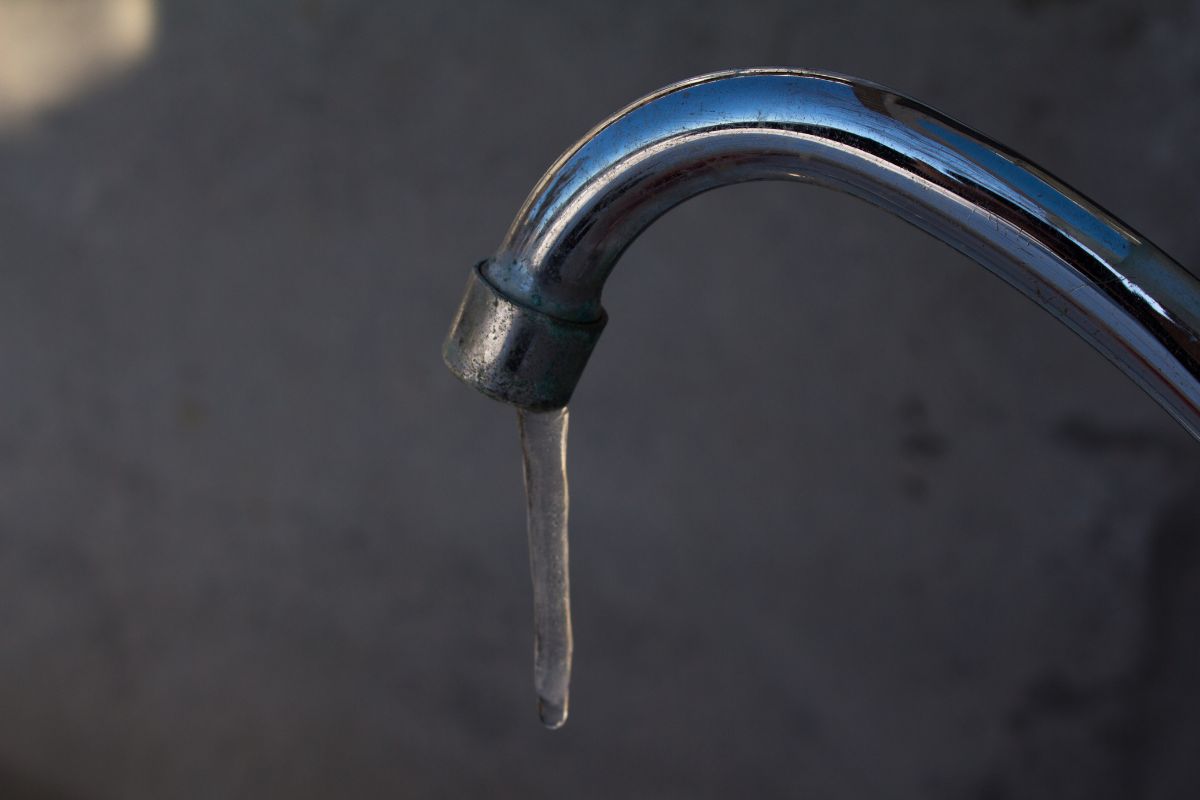For homeowners living in colder regions, freezing pipes is not an uncommon problem. When this happens, should you turn off your water heater? We did the research to bring you the answer.
In the case that your pipes freeze, you should turn off your water heater. In addition, you should turn off the main water supply in your home and open the faucets. Immediately after, contact a professional plumber to assess and repair the issue.
It is important that you take these measures as soon as possible to prevent further damage to your home. In this article, we will discuss why you should turn off your water heater when your pipes freeze and what other steps you should take. In addition, we will answer other frequently asked questions about pipes freezing in a home, so read on!

What Should I Do With Water Heater If Pipes Freeze?
Water pipes freezing in a home is a common problem, especially for those living in colder climates. When this happens, there are some steps you need to take to ensure there is no further damage.
You should first go to the main water supply valve in your house and turn it off. This will stop any more water from coming into the home and causing additional problems.
Next, you should go to your water heater and turn it off as well. The reason being is that the water heater will still be trying to heat the water even though the pipes are frozen. This can cause additional damage to the water heater.
In addition, when the pipes are frozen, it will stop the water from flowing. As a result, this can cause your pipes to leak or burst when the water thaws and the pressure is released.
After you have taken these steps, it is important that you contact a professional plumber to come and assess the situation. They will be able to fix any damage that has been done and prevent any further issues.
In the meantime, the plumber may have you take some other steps, such as using heating pads or a hair dryer, to thaw the frozen pipes.
You can also put a space heater in the room with the frozen pipes to help thaw them out. Just be sure that you do not leave the space heater unattended and that it is not close to any flammable materials.

How Can I Prevent Frozen Pipes?
In cold regions, water pipes freezing is something that can affect any homeowner or renter. Nonetheless, there are some preventive measures that everyone should take to help avoid frozen pipes.
Let's take a look at a few of those measures now:
Turn Off Water Supply When Gone For Long Periods
If the home is a summer home or you plan on being gone for an extended period of time, it is important that you turn off the water to the home.
For example, if you plan on being in Arizona during the winter months, you would want to turn off the water before you leave.
This will help to prevent any water from sitting in the pipes and freezing. In addition, it will also help to prevent any leaks or burst pipes while you are gone.
After you turn off the main water supply, you should also empty any water left in the faucets. This can be done by turning on each faucet until the water stops flowing.
Insulate Water Pipes
Another great way to help prevent frozen pipes is to insulate them. This can be done with foam pipe insulation or electric heat tape.
For vulnerable pipes, such as those that run along an exterior wall, you may want to use both methods. This will help to keep the pipes warm and prevent them from freezing.
In addition, you should also insulate any valves or spigots that are located outside. These can be insulated with a faucet cover or foam insulation.
If you live in an area that is prone to power outages, you may also want to consider a backup generator. This will help to keep the heat on in your home and prevent your pipes from freezing.
Seal Air Leaks
One of the main culprits of frozen pipes is cold air leaks. These can be found around windows, doors, and the foundation. To help prevent cold air leaks, you should seal any cracks or gaps that you find. This can be done with caulk, weather stripping, or foam insulation.
In addition, you should also make sure that your doors and windows are properly sealed. You may want to replace any old or worn-out seals.
Keep Your Heat On
Even if you plan on leaving for a period of time, you should still keep your heat on in your home. You should set the thermostat to at least 55 degrees Fahrenheit. This will help to prevent your pipes from freezing.
If you have a programmable thermostat, you can set it to lower the temperature when you are gone and raise it again when you return. You should also open any cabinet doors that are located near pipes. This will help to allow heat to reach the pipes and prevent them from freezing.

Let The Faucets Trickle
While it will cost you a few extra dollars in water, it is worth it to let the faucets trickle when cold weather is expected.
By running a small stream of water, you can help to prevent your pipes from freezing or bursting. Simply turn on the indoor and outdoor faucets that are located near vulnerable pipes. By doing this, you can help to avoid the costly and time-consuming repair that is needed for frozen or burst pipes.
Should I Leave Faucets Open When Pipes Freeze?
If your pipes have already frozen, you may be wondering if you should leave the faucets open. The answer to this question is yes. By leaving the faucets open, you can help to prevent your pipes from bursting.
As the water thaws, it will be able to flow through the pipes and relieve any pressure that has built up. This can help to prevent your pipes from bursting and causing extensive damage to your home.
What Should You Do If Frozen Pipes Burst?
If you come home to find that your pipes have burst, the first thing you should do is turn off the water to your home. This will help to prevent any further damage from occurring. You should then call a plumber to come and repair the damaged pipes.
In addition, you should dry the water that has leaked out and remove any wet items from the area. This will help to prevent mold or mildew from forming.
Plus, sitting water can be detrimental to your flooring. Hardwood floors can warp, and laminate floors can swell. If you have carpet, you should remove it as soon as possible to prevent mold or mildew from forming.
In some cases, it may be too late to save the flooring. Nonetheless, drying the areas as soon as possible mitigates the risk of mold getting into the walls. Either way, you should call your insurance company to have the damage evaluated.

How Long Does It Take For Pipes To Unfreeze?
The amount of time it takes for pipes to unfreeze will vary depending on the severity of the freeze, pipe location, and outside temperature. If you are quick to act and start heating the area, the process can be expedited.
You can use a hairdryer, space heater, or heat lamp to help thaw the pipes. Simply aim the heat at the frozen section of the pipe, and wait for the ice to melt. Sometimes, this can thaw the pipes within 30 minutes. However, in other cases, it can take a few hours for the pipes to unfreeze.
How Do You Know Pipes Are Frozen?
If you are worried that your pipes may be frozen, there are a few signs you can look for.
First, you can check to see if any faucets in your home are giving off little to no water. This is a sign that the pipe leading to the faucet is frozen. Another sign of frozen pipes is unusual condensation on the outside of the pipes. You may also see frost on the pipes.

If you see these signs, it is important to take action immediately to prevent your pipes from bursting. Lastly, you can take a wrench and tap the pipes. If the pipes make a solid sound, they are probably frozen. In any of these cases, it is important to take action to thaw your pipes as soon as possible.
Final Thoughts
While frozen pipes can be a nightmare, there are a few things you can do to prevent them. By following the tips in this article, you can help to keep your pipes from freezing and bursting. Also, be sure to call a professional if you think your pipes have already frozen.
Made it to the end? Here are other articles you might find helpful:
Should I Turn Off My Water Heater At Night?
